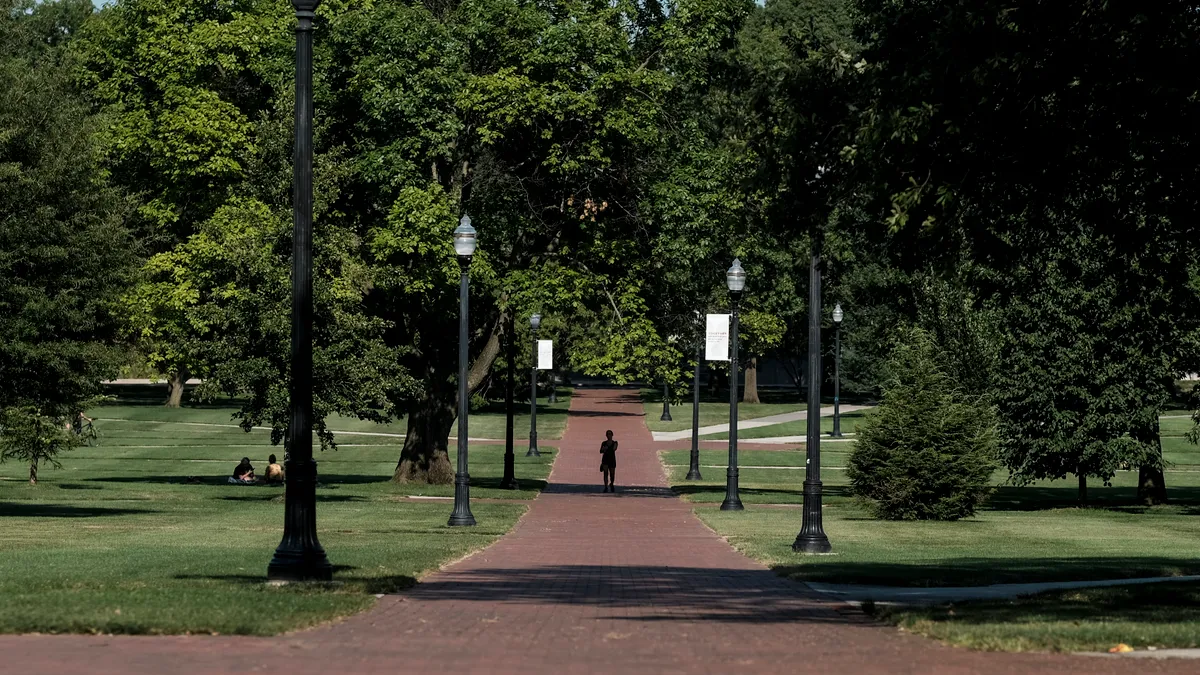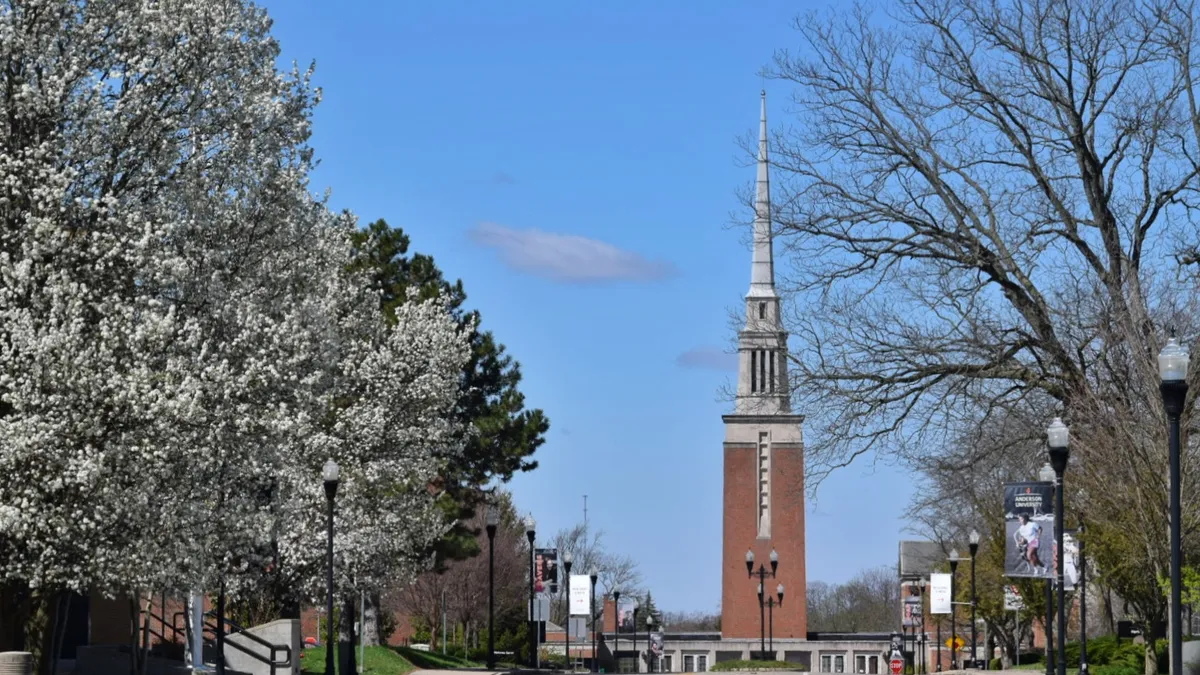Dive Brief:
- Bellevue University in Nebraska takes a liberal arts approach to online education, focusing on small class sizes and high-touch faculty who provide oversight and guidance to students, and, in turn, improve retention.
- According to eCampus News, the school requires faculty to take a course about online teaching strategies before leading their first classes, and they are then monitored by senior faculty and deans; a performance-based approach to student progress avoids automation of some competency-based programs.
- While programs map curricula and outline outcomes and performance skills students must master, it is a combination of tests and other assessments, like video presentations, that allow students to prove their skill — and while the programs are largely self-paced, students must meet major milestones to stay largely in step with one another.
Dive Insight:
Colleges and universities have jumped into the online space in recent years to expand their reach, target new student populations, and offer greater degree flexibility to those who want it. That has created a higher education marketplace in which supply is way up. But demand, as it turns out, is down.
Most schools start their foray into online education with graduate programs that are faster and cheaper to design, but as the economy improves, fewer students stay out of the workforce to continue their education. There are 450 online MBA programs competing for student enrollments today. One potential area of undersupply is online undergraduate programs. The rush of competency-based options could fill that gap, but schools may have trouble covering their costs if the programs are marketed as cheaper alternatives to traditional degree programs.











